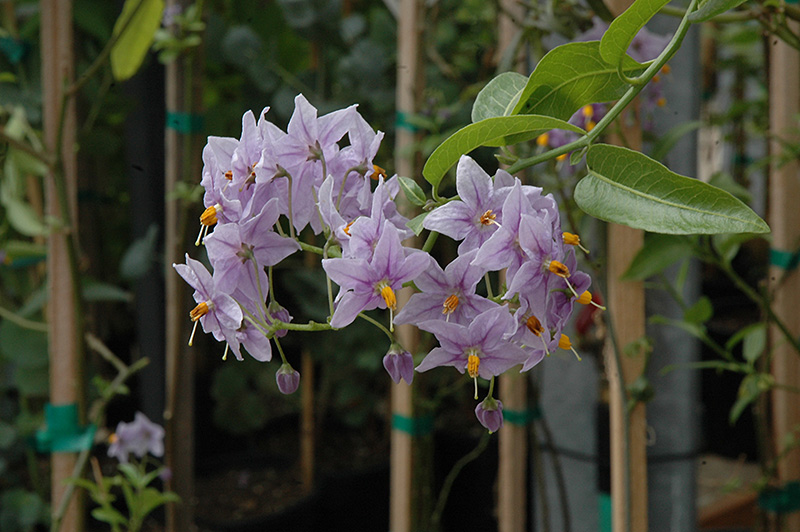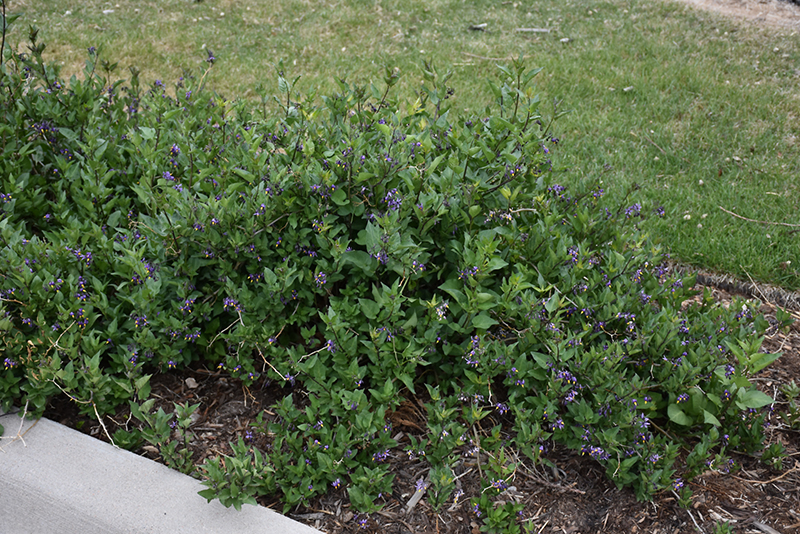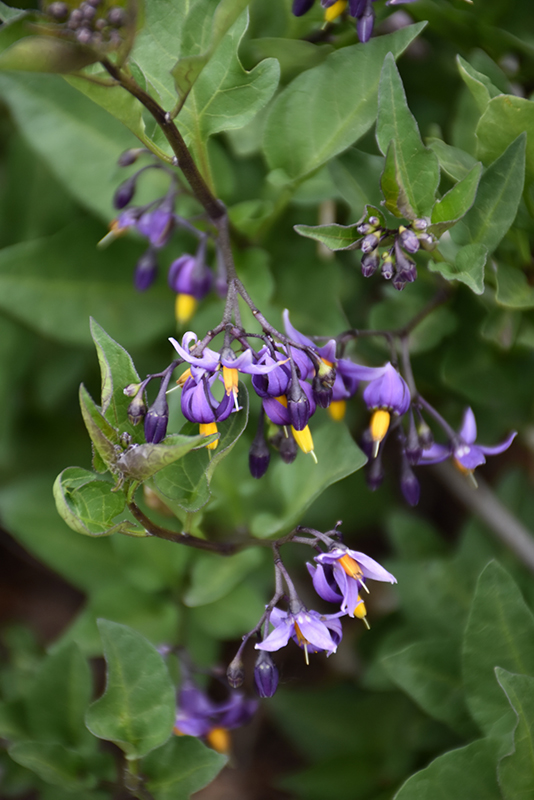Glasnevin Chilean Potato Bush
Solanum crispum 'Glasnevin'
Height: 12 feet
Spread: 5 feet
Sunlight:
![]()
Hardiness Zone: (annual)
Description:
An exceptional, hardy climbing shrub offering intense violet-blue flowers with bright yellow centers from spring until fall; can be grown free standing or supported to climb fences or trellises; also great in containers
Ornamental Features
Glasnevin Chilean Potato Bush is blanketed in stunning clusters of violet star-shaped flowers with blue overtones and yellow eyes at the ends of the branches from mid spring to mid fall. Its narrow leaves remain green in colour throughout the year.
Landscape Attributes
Glasnevin Chilean Potato Bush is a multi-stemmed annual with a ground-hugging habit of growth. Its medium texture blends into the garden, but can always be balanced by a couple of finer or coarser plants for an effective composition.
This is a high maintenance plant that will require regular care and upkeep, and is best pruned in late winter once the threat of extreme cold has passed. It has no significant negative characteristics.
Glasnevin Chilean Potato Bush is recommended for the following landscape applications;
- Accent
- Hedges/Screening
- General Garden Use
Planting & Growing
Glasnevin Chilean Potato Bush will grow to be about 12 feet tall at maturity, with a spread of 5 feet. As a climbing vine, it should either be planted near a fence, trellis or other landscape structure where it can be trained to grow upwards on it, or allowed to trail off a retaining wall or slope. Although it's not a true annual, this plant can be expected to behave as an annual in our climate if left outdoors over the winter, usually needing replacement the following year. As such, gardeners should take into consideration that it will perform differently than it would in its native habitat.
This plant should only be grown in full sunlight. It prefers to grow in average to moist conditions, and shouldn't be allowed to dry out. It is not particular as to soil type or pH. It is somewhat tolerant of urban pollution. Consider applying a thick mulch around the root zone in winter to protect it in exposed locations or colder microclimates. This is a selected variety of a species not originally from North America, and parts of it are known to be toxic to humans and animals, so care should be exercised in planting it around children and pets.



